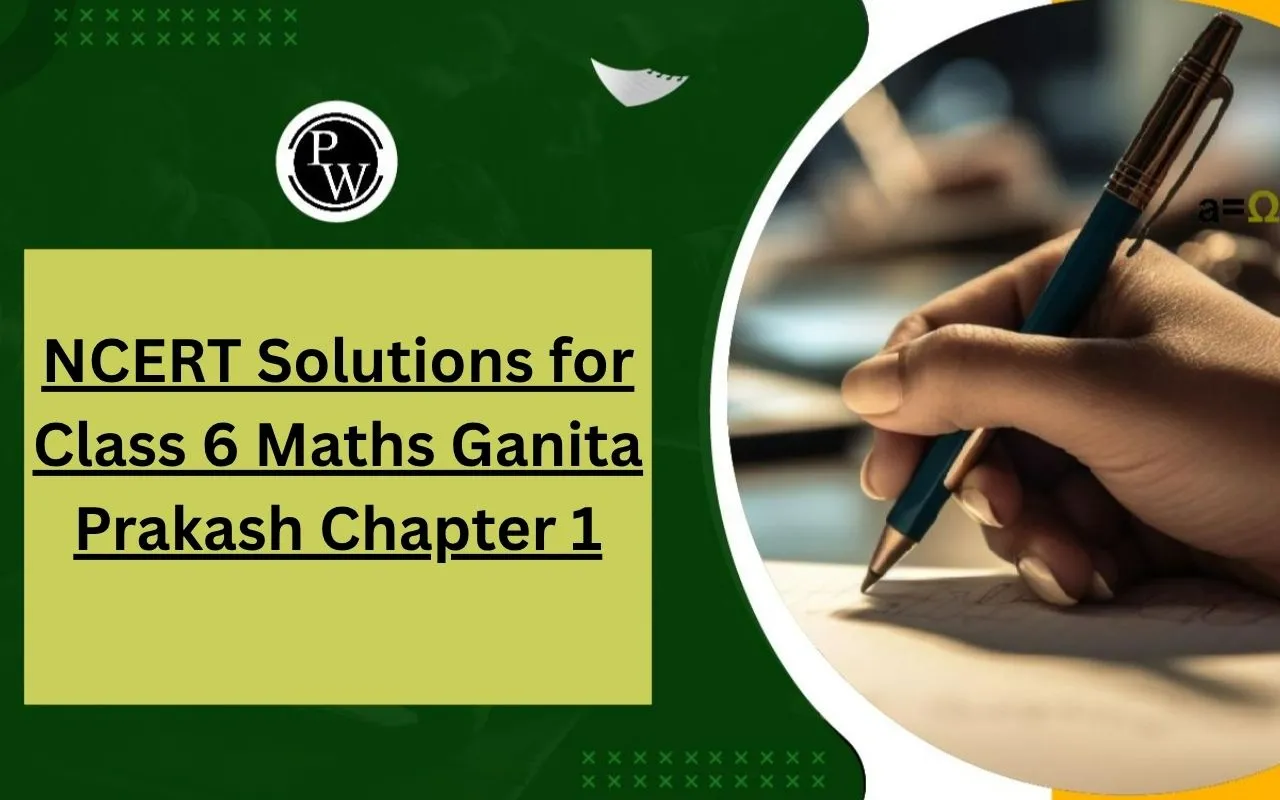
CBSE Class 6 Political Science Notes Chapter 6: These notes are important for students studying rural administration in the context of CBSE Class 6 Political Science. They simplify complex concepts related to how local governance operates in rural areas, making it easier for students to grasp the roles and responsibilities of various officials.
By understanding rural administration, students can appreciate how government functions at the grassroots level and how it impacts their daily lives.CBSE Class 6 Political Science Notes Chapter 6 Overview
These notes are prepared by subject experts of Physics Wallah provide a detailed overview of rural administration for CBSE Class 6 students. They break down the structure and functions of local governance, highlighting the roles of various officials and how they serve rural communities. By simplifying complex ideas, these notes make it easier for students to understand the significance of effective administration in rural areas. Through this chapter, students learn about the systems in place to address local issues and promote development, empowering them to engage actively in their communities. Overall these notes are a valuable resource for building a strong foundation in political science and enhancing students awareness of their civic responsibilities.CBSE Class 6 Political Science Notes Chapter 6 PDF
The PDF link for CBSE Class 6 Political Science Notes Chapter 6 on Rural Administration is available below. By accessing this PDF students can enhance their understanding of the mechanisms that support their communities and promote development.CBSE Class 6 Political Science Notes Chapter 6 Rural Administration PDF
CBSE Class 6 Political Science Notes Chapter 6 Rural Administration
Here we have provided CBSE Class 6 Political Science Notes Chapter 6 Rural Administration-Rural Administration
The story of Mohan and Raghu highlights the importance of rural administration in resolving disputes and maintaining order in farming communities. Mohan, a farmer, faces challenges when his neighbor Raghu illegally shifts their land boundary, leading to conflict. After being assaulted, Mohan decides to file a complaint at the local police station. However, he quickly realizes that police jurisdiction limits his options, as each station is responsible for a specific area. To address land disputes effectively, accurate land records are crucial. The Patwari, or village officer, plays a vital role in maintaining these records. This officer measures agricultural fields and keeps track of land ownership and revenue collection. With updated records, it would be easier to resolve conflicts like that between Mohan and Raghu. In rural areas, the administrative structure is hierarchical. Each district has a District Collector overseeing revenue officers known as tehsildars. These officials not only manage land disputes but also ensure that farmers can access important documents like land records and caste certificates. Through this structured system, rural administration works to maintain order and support the farming community, highlighting the need for clear records and effective governance.A New Law: Hindu Succession Amendment Act, 2005
Historically, agricultural land ownership has been predominantly male, leaving many women who work in the fields without any legal claim to the land. In several states, Hindu women were not entitled to inherit their family's agricultural land; upon the father's death, property was typically divided only among sons. However, the Hindu Succession Amendment Act of 2005 marked a significant change in this practice. The new law ensures that sons, daughters, and mothers all receive an equal share of the family land, regardless of the state or union territory in which they reside. This landmark legislation aims to promote gender equality and empower women, giving them legal rights to property and a stake in the family's agricultural resources.Important Questions for CBSE Class 6 Political Science Notes Chapter 6 Rural Administration
Here are the important questions and answers of Chapter 6 for Class 6 students: Q.1. If there is a theft in your house, which police station would you go to register your complaint? Ans. You would go to the local police station that has jurisdiction over the area where your house is located. Each police station is responsible for handling complaints within its designated area. Q.2. Find out the term used for the Patwari in your state. Ans. The term for Patwari can vary by state. For example, in Uttar Pradesh, they are called "Lekhpal," while in Maharashtra, they may be referred to as "Talathi." You can check the specific term used in your state by researching local government resources. Q.3. What is the work of the police? Ans. The primary work of the police includes maintaining law and order, investigating crimes, ensuring public safety, and responding to emergencies. They also help to prevent crime and assist citizens in need. Q.4. List two things that the work of a Patwari includes. Ans. Maintaining and updating land records for farmers. Collecting land revenue from farmers and providing information to the government about the crops grown in the area. Q.5. What is the work of a tehsildar? Ans. A tehsildar supervises the work of Patwaris and is responsible for managing land revenue in a specific area. They also handle land disputes, ensure proper record-keeping, and assist residents in obtaining necessary documents, such as land records and caste certificates.Benefits of CBSE Class 6 Political Science Notes Chapter 6 Rural Administration
- Understanding Rural Governance : These notes help students grasp the structure and functions of rural administration, including the roles of officials like Patwaris and Tehsildars.
- Simplified Concepts : Complex ideas are broken down into simpler explanations, making it easier for students to understand how rural administration impacts their lives.
- Focus on Rights and Responsibilities : Students learn about their rights related to land and property, particularly through the lens of laws like the Hindu Succession Amendment Act.
- Engagement with Local Issues : By discussing local governance, the notes encourage students to think about their community and the importance of participating in local administration.
- Foundation for Future Studies : This chapter provides a solid foundation for understanding more complex topics in later classes, particularly in social studies and political science.
- Time Efficiency: By summarizing important information these notes save time during revision, allowing students to review and grasp concepts more quickly compared to studying from multiple sources.
- Exam Readiness : By covering all the important topics related to the chapter, the notes ensure you are well-prepared and confident for your exam.
CBSE Class 6 Political Science Notes Chapter 6 FAQs
What is Rural Administration?
Rural administration refers to the management and governance of rural areas by various government officials and bodies. It includes maintaining land records, collecting taxes, and implementing development programs.
Who is a Patwari?
A Patwari is an official responsible for maintaining land records in a village. They measure land, collect land revenue, and provide information about agricultural activities.
What is the role of a Tehsildar?
A Tehsildar oversees the work of Patwaris in a subdivision (tehsil) and handles land disputes. They ensure proper record-keeping and the collection of revenue.
What should I do if I have a land dispute
If you have a land dispute, you can approach the Tehsildar’s office to register your complaint and seek resolution.
Talk to a counsellorHave doubts? Our support team will be happy to assist you!

Check out these Related Articles
Free Learning Resources
PW Books
Notes (Class 10-12)
PW Study Materials
Notes (Class 6-9)
Ncert Solutions
Govt Exams
Class 6th to 12th Online Courses
Govt Job Exams Courses
UPSC Coaching
Defence Exam Coaching
Gate Exam Coaching
Other Exams
Know about Physics Wallah
Physics Wallah is an Indian edtech platform that provides accessible & comprehensive learning experiences to students from Class 6th to postgraduate level. We also provide extensive NCERT solutions, sample paper, NEET, JEE Mains, BITSAT previous year papers & more such resources to students. Physics Wallah also caters to over 3.5 million registered students and over 78 lakh+ Youtube subscribers with 4.8 rating on its app.
We Stand Out because
We provide students with intensive courses with India’s qualified & experienced faculties & mentors. PW strives to make the learning experience comprehensive and accessible for students of all sections of society. We believe in empowering every single student who couldn't dream of a good career in engineering and medical field earlier.
Our Key Focus Areas
Physics Wallah's main focus is to make the learning experience as economical as possible for all students. With our affordable courses like Lakshya, Udaan and Arjuna and many others, we have been able to provide a platform for lakhs of aspirants. From providing Chemistry, Maths, Physics formula to giving e-books of eminent authors like RD Sharma, RS Aggarwal and Lakhmir Singh, PW focuses on every single student's need for preparation.
What Makes Us Different
Physics Wallah strives to develop a comprehensive pedagogical structure for students, where they get a state-of-the-art learning experience with study material and resources. Apart from catering students preparing for JEE Mains and NEET, PW also provides study material for each state board like Uttar Pradesh, Bihar, and others
Copyright © 2026 Physicswallah Limited All rights reserved.







